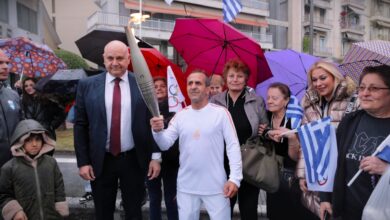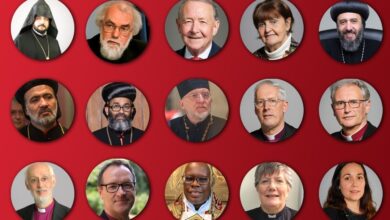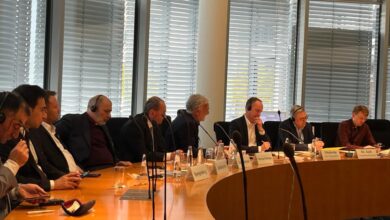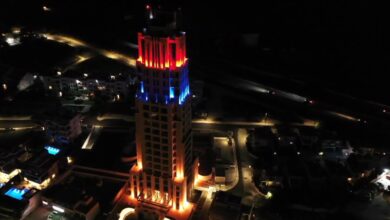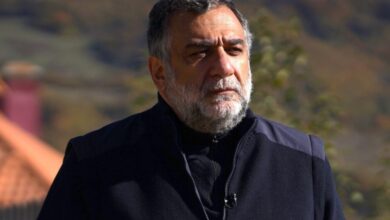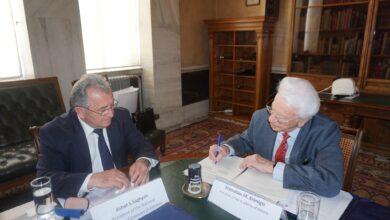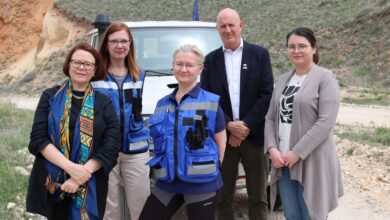Living Memory: An evening in London dedicated to Armenian Genocide centenary
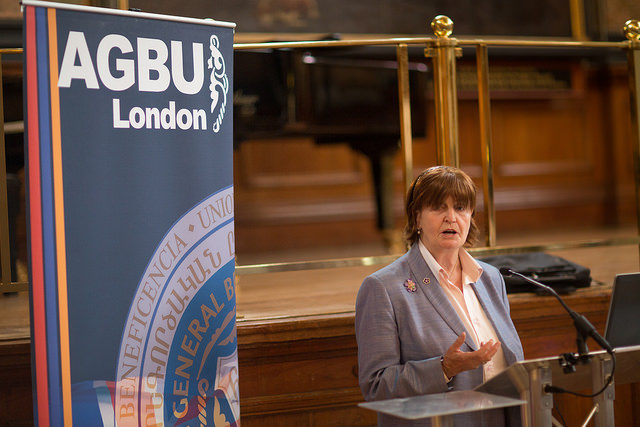
On 26 June 2015 the Executive Committee of the AGBU London Chapter organised an evening, “Living Memory” at the Chelsea Old Town Hall dedicated to the Centenary of the Armenian Genocide and the rebirth of the Armenian nation.
The first part of the event (4-7 P.M.) was an impressive exhibition, “The memory is still alive”, dedicated to the works of the young painter Nairi Afrikian. The visitors watched the exhibits of this very talented artist with great interest and admiration. Some of the works were a combination of painting and sculpture, manifesting a style which uniquely belongs to Nairi Afrikian. It should be noted that the exhibition was dedicated to the Centenary of the Armenian Genocide.
The second part of the evening was opened by Assadour Guzelian, who welcomed the honorary guests attending the function, such as Baroness Caroline Cox, Ex-Mayor of Chelsea Councillor Condon Semmondz, Honorary Alderman Mushtaq Lasharie and Counsellor of the Armenian Embassy Tigran Galstyan, as well as the audience. After making a short reference to the Armenian Genocide, Guzelian read the following passage from Winston Churchill’s book, “The Aftermath” regarding the extermination of the Armenians by the Ottoman Turkish Government during WWI. “There is no reasonable doubt that this crime was planned and executed for political reasons. The opportunity presented itself to clearing Turkish soil of a Christian race.” Guzelian then read the letter he received from the Foreign & Commonwealth Office in response to his Open Letter written in February to P. M. Cameron, President Obama and President Netanyahu about recognising the Armenian Genocide. The letter confirmed that the British Government had not altered its position. Guzelian pointed out that “powerful governments like USA and Great Britain can bury JUSTICE, but they should always remember that TRUTH has never had a grave in history. One cannot bury the truth.”
The founder-director of the Komitas Institute Ara Sarafian, a historian specialising in late Ottoman and modern Armenian history, delivered a lecture entitled “Let us remember the Armenians living in Turkey today”. He referred to his meetings with the Turkish and Kurdish intellectuals, representatives of various organisations, public figures, ordinary citizens and peasants in different provinces of Turkey, illustrating his talk with maps and pictures. In his very interesting lecture Sarafian pointed out that compared to the undemocratic and dictatorial regime of two decades ago, the situation has improved considerably in present day Turkey. Many issues, which were considered taboo and could not be publically referred to then, including the Armenian Genocide, can now be openly discussed, and as a result many hidden Islamised Armenians are returning to their roots. Sarafian emphasised that for the pursuit and peaceful solution of the Armenian question, we must ensure the cooperation of Turkish and Kurdish intellectuals, public figures and organisations. A reputed specialist in his subject, Ara Sarafian’s lecture had a great impact on the audience.
One of the greatest friends of Armenia, Artsakh and the Armenian people, Baroness Caroline Cox delivered an excellent speech full of emotion, entitled “The spirit of Armenia: Beauty from the ashes of destruction”. After a short reference to the Armenian Genocide centennial commemoration event on April 24 at the Tsitsernagapert in Armenia, Baroness Cox spoke about the atrocities perpetrated by Azerbaijan on Armenians of Artsakh during the war. She condemned barbaric crimes committed by Azerbaijan and praised the Armenians of Artsakh for their Christian spirit and patriotism. She narrated many moving stories related to her 82 humanitarian visits to Armenia and Artsakh.
According to Baroness Cox, during the Azerbaijan-Artsakh war, the Azeris launched 400 Grad rockets every day on Stepanagerd. Hundreds of missiles and rockets were launched, amongst other sites on historic Gantsassar Church. Only one bomb fell on the church, but did not explode! Baroness Cox attributed this to Divine intervention. She spoke from her heart and that is why her moving stories made some members of the audience cry! Baroness Cox ended her speech by reading the English translation of a poem written by Gegham, a ten year old Armenian boy from Artsakh.


